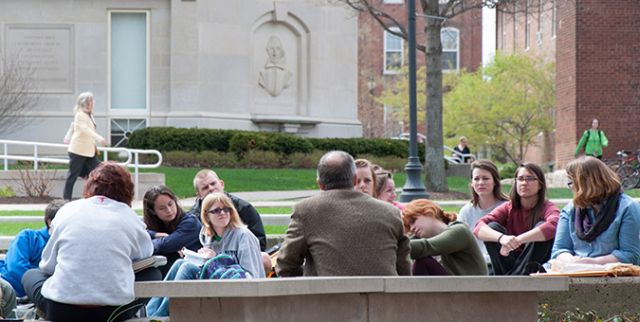
Philosophy Faculty Publications
Document Type
Article
Publication Date
2007
Publication Source
The Journal of Speculative Philosophy
Abstract
Robert Fine and Robin Cohen conclude their essay “Four Cosmopolitan Moments” by stating that developing cosmopolitanism “has become an urgent moral necessity” (2002, 162). As resources for this task they offer the Stoics, Kant, Arendt, and Nussbaum as particularly important “moments” in the history of cosmopolitanism. David Held (2002, 57) shares their sense of urgency but worries that a Kantian understanding of political communities gives an inadequate basis for this task. David Hollinger identifies as “new cosmopolitans” an array of scholars who articulate alternatives to Nussbaum's universalism and Kymlicka's pluralism, in attempting “to connect the notion of a species-wide community to actual politics, to the complex of possibilities and restraints found on the ground” (2001, 238). Noting these scholars’ penchant for attaching adjectives to cosmopolitanism, Hollinger lists their modifiers as including “vernacular,” “rooted,” “critical,” “comparative,” “national,” “discrepant,” “situated,” and “actually existing” (2001, 237).
In this article I suggest a large project and carry out a small part of it. The large project is to propose early twentieth-century American pragmatism as another “cosmopolitan moment.” Several of the early pragmatists were engaged in precisely the task Hollinger describes above of connecting a species-wide community to on-the-ground politics; their work could serve as a historical resource for today's new cosmopolitans. The small project is to use essays written around the time of World War I by Randolph Bourne, W. E. B. DuBois, and Jane Addams, three American pragmatists and public intellectuals, to assess the Stoic metaphor of cosmopolitan, concentric circles of affiliation. Using Nussbaum's presentation of this metaphor to focus the discussion, I will show how these pragmatist cosmopolitans unsettle Nussbaum's implicit background assumptions that the circles are conceptually distinct and that the way to develop allegiance to the widest circle of humanity is through Kantian rationality. This small project will demonstrate how a pragmatist cosmopolitan moment can be a fruitful resource for today's new cosmopolitans.
Inclusive pages
151-165
ISBN/ISSN
0891-625X
Document Version
Postprint
Copyright
Copyright © 2008, Pennsylvania State University
Publisher
Johns Hopkins University Press
Volume
21
Issue
3
Peer Reviewed
yes
eCommons Citation
Fischer, Marilyn, "A Pragmatist Cosmopolitan Moment: Reconfiguring Nussbaum's Cosmopolitan Concentric Circles" (2007). Philosophy Faculty Publications. 135.
https://ecommons.udayton.edu/phl_fac_pub/135



Comments
The document available for download is the author's accepted manuscript, provided in compliance with the publisher's policy on self-archiving. Differences may exist between this document and the version of record, which is available using the link provided. Permission documentation is on file.